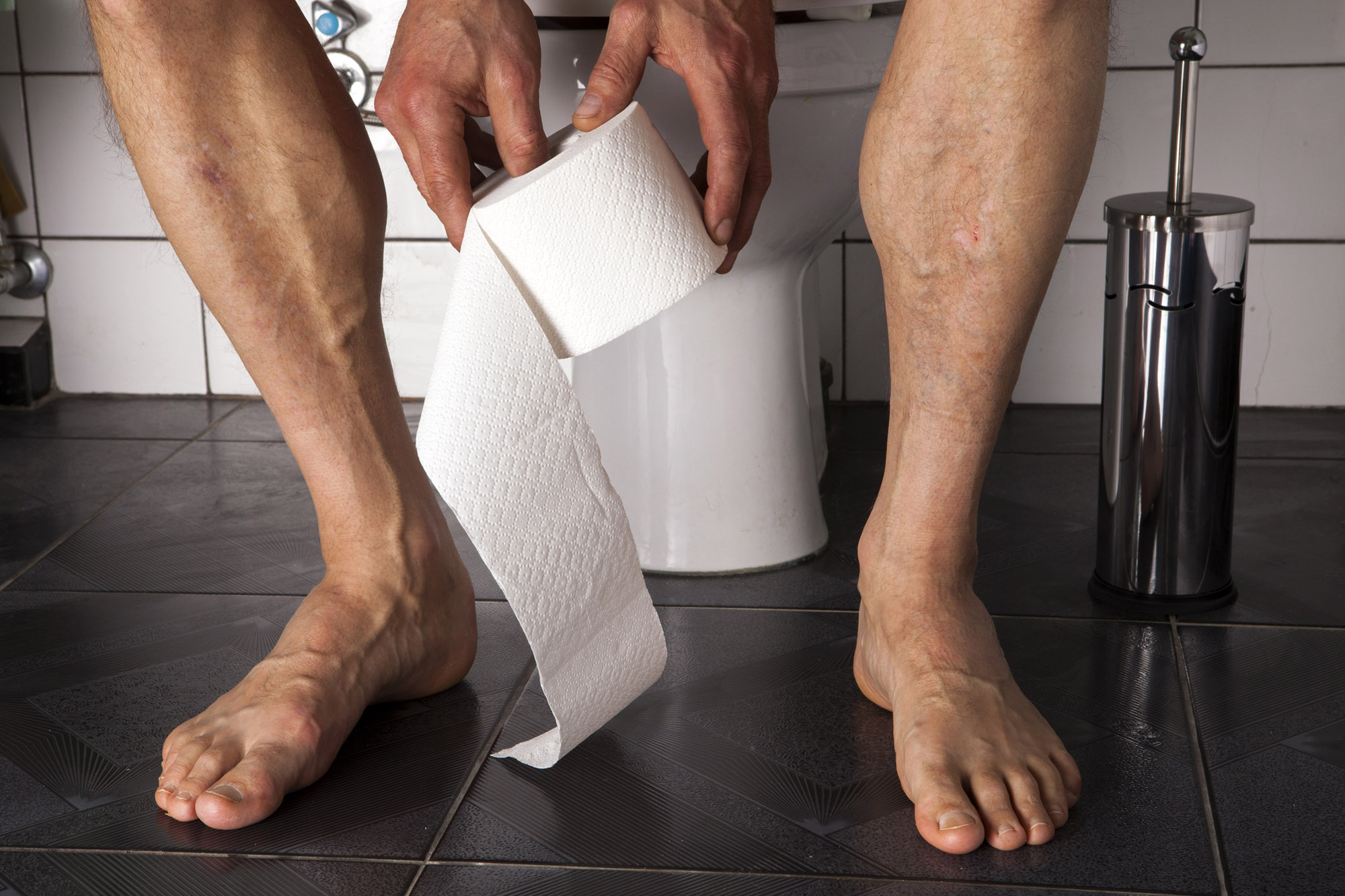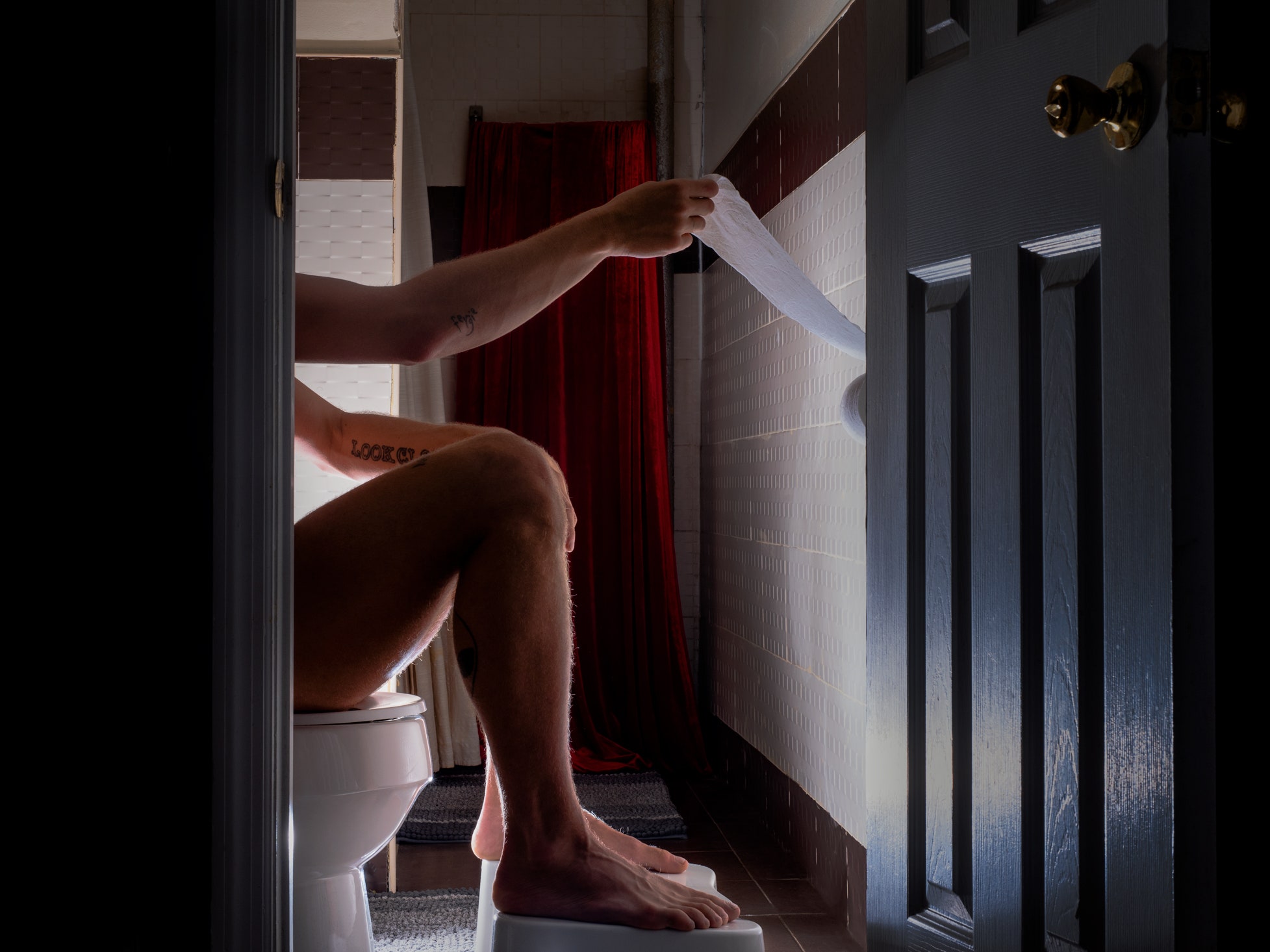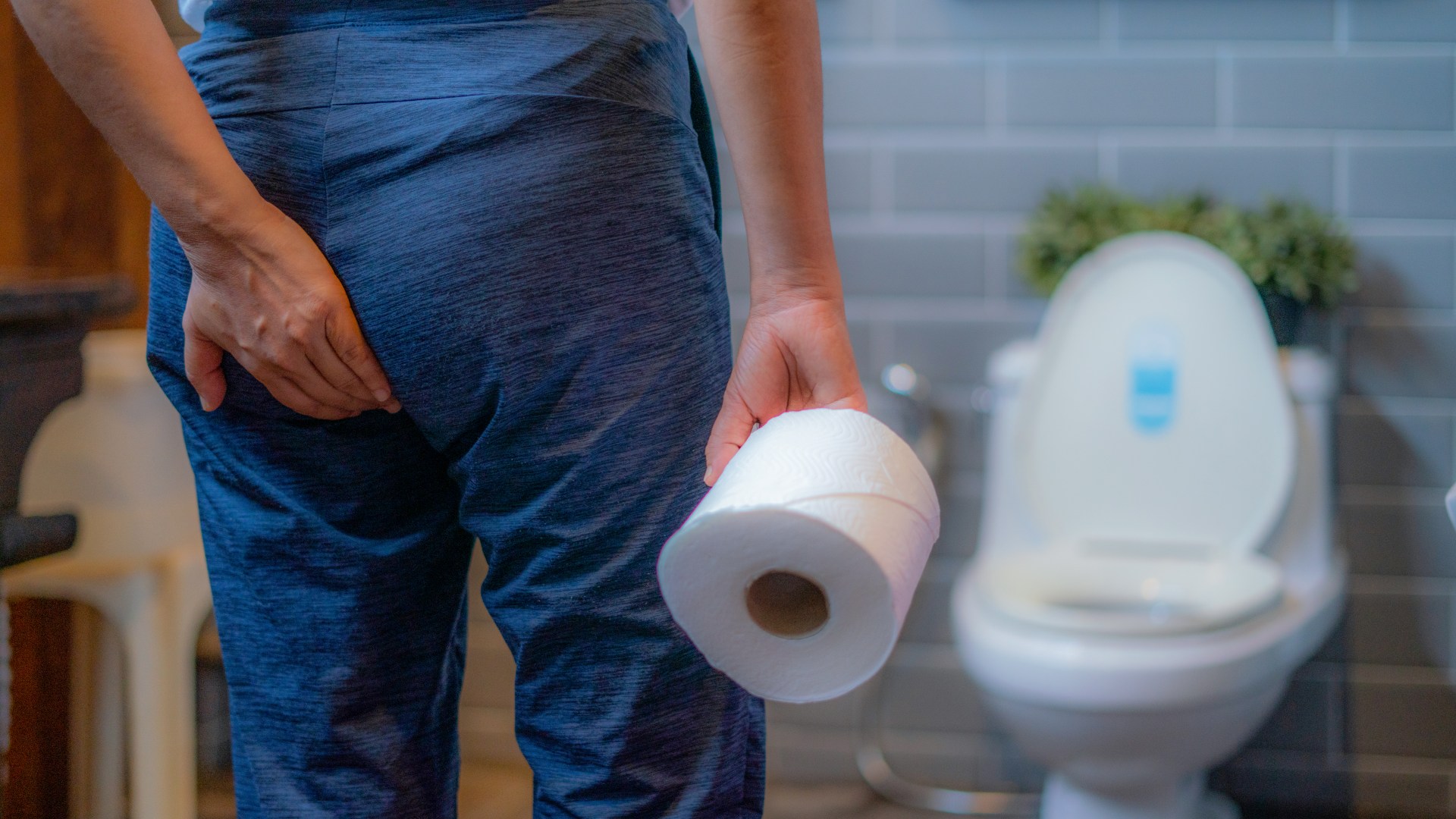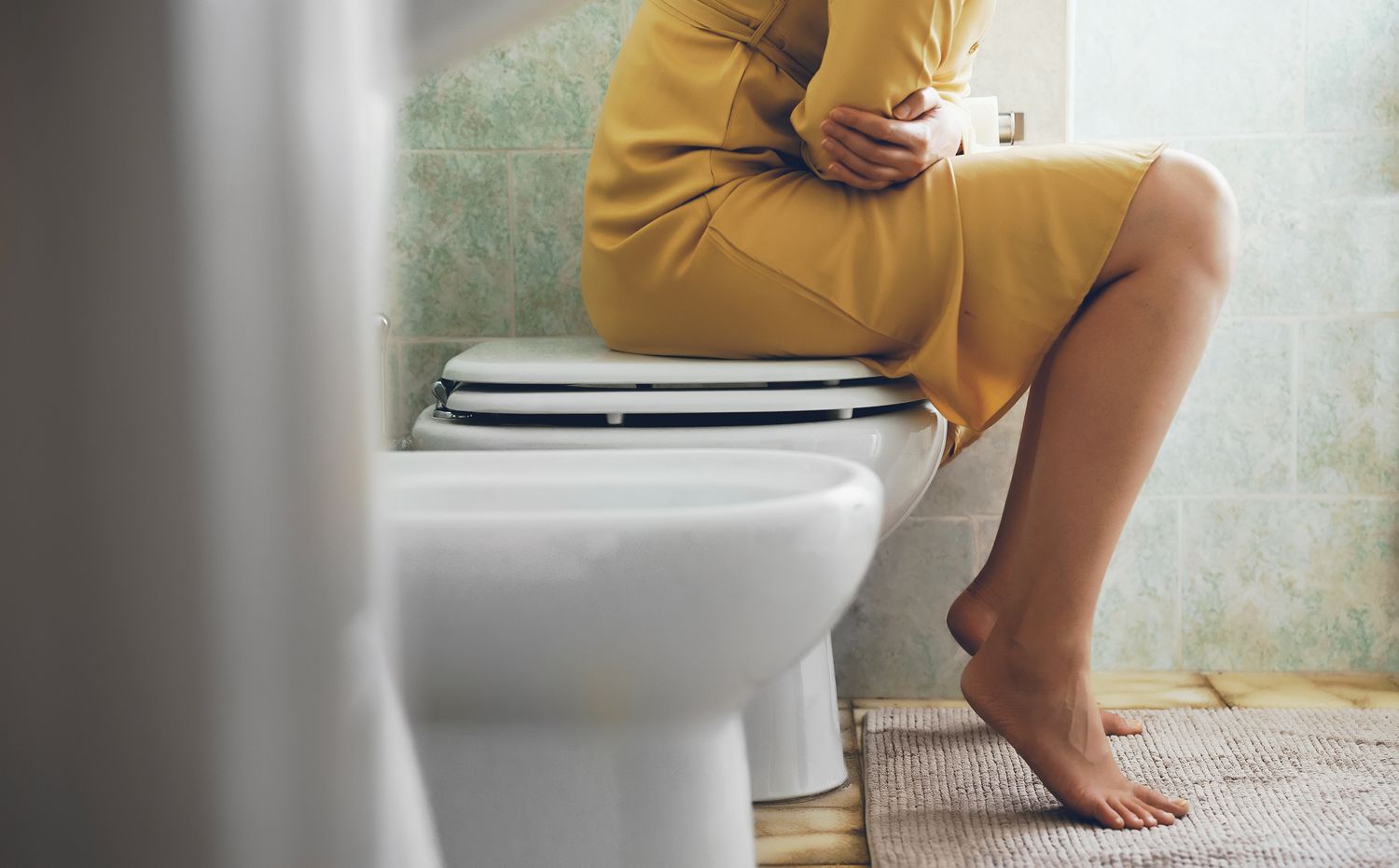

FAQs
Why Does Poop Come Out When I Fart
Modified: September 23, 2023
Learn the science behind why poop sometimes accompanies a fart. Discover the answers to all your general questions about this common bodily function.
(Many of the links in this article redirect to a specific reviewed product. Your purchase of these products through affiliate links helps to generate commission for Under-tec.com, at no extra cost. Learn more)
Table of Contents
- Why Does Poop Come Out When I Fart
- Introduction
- Understanding Flatulence
- Relation between Farting and Defecation
- Mechanism of Farting
- Causes of Accidental Poop during Farting
- Impact of Diet on Farting and Defecation
- Medical Conditions that Lead to Farting with Poop
- Tips to Prevent Poop during Farting
- Conclusion
Why Does Poop Come Out When I Fart
Let’s face it, passing gas is a natural bodily function that we all experience from time to time. However, sometimes an unexpected surprise accompanies this act – poop. You’re not alone if you’ve ever wondered why poop comes out when you fart. In this article, we’ll explore the reasons behind this phenomenon.
Understanding the relationship between farting and defecation is key to unraveling the mystery. Contrary to popular belief, farting and pooping are not mutually exclusive events. They both involve the same area of the body – the anus. Both gas and stool pass through the rectum, and the expulsion of gas, or farting, occurs more frequently and naturally than bowel movements.
The mechanism of farting, technically known as flatulence, involves the release of excess air that accumulates in the digestive system. This air can enter the body when we swallow (known as swallowing air), or it can be produced as a byproduct of digestion. When the pressure in your bowels becomes too great, your body will involuntarily expel the gas through the anus, resulting in a fart.
However, there are occasions when a fart goes awry, causing a small amount of stool to be expelled along with the gas. This accidental release of poop during a fart can have several causes. One common cause is weakened or damaged muscles around the anus. These muscles, known as the sphincters, are responsible for holding in stool until you are ready to have a bowel movement. If these muscles are not functioning properly, it is possible to release some stool while farting.
Another factor that can contribute to poop coming out when you fart is diet. Certain foods can increase gas production in the digestive system, making farting more frequent. Additionally, a diet lacking in fiber can lead to constipation and increased pressure in the rectum, making accidental poop more likely during farting.
There are also medical conditions that can cause poop to come out when you fart. Conditions such as diarrhea, inflammatory bowel disease, or fecal incontinence can weaken the control you have over your bowel movements, leading to unexpected poop during a fart.
To prevent poop from coming out when you fart, there are a few tips you can follow. Firstly, maintaining a high-fiber diet can help regulate bowel movements and reduce the likelihood of constipation. Additionally, practicing pelvic floor exercises, such as Kegels, can strengthen the muscles around the anus and improve bowel control. Lastly, if you are experiencing frequent or persistent episodes of accidental poop during farting, it is important to consult with a healthcare professional to rule out any underlying medical conditions.
In summary, while farting and pooping may seem unrelated, they share a common passage – the anus. Accidental release of poop during a fart can be caused by weakened muscles, dietary factors, or underlying medical conditions. By understanding the reasons behind this occurrence and implementing preventive measures, you can minimize the chances of poop coming out when you fart.
Introduction
Flatulence, more commonly known as farting, is a common and natural bodily function that everyone experiences. It’s a release of excess gas that accumulates in the digestive system. While farting is a harmless and often amusing occurrence, there are times when it can lead to an unexpected surprise – poop.
It can be quite perplexing when you fart and a small amount of poop comes out along with the gas. You may find yourself wondering why this happens and if it’s normal. In this article, we will delve into the reasons behind the occurrence of poop when farting.
The relationship between farting and defecation is closely intertwined. Both processes involve the same area of the body – the anus. The anus acts as a passage for both gas and stool to exit the body. While farting and defecating are separate bodily functions, they can occur in conjunction with each other.
To understand why poop can come out when you fart, it’s important to grasp the mechanism of farting. Farting, or flatulence, is the body’s way of releasing excess air that is present in the digestive system. This air can enter the body through various means, such as swallowing air while eating or the production of gas during the digestion process.
Normally, the body can tolerate a certain amount of gas buildup in the digestive system without any issues. However, when the pressure in the bowels becomes too great, the body instinctively and involuntarily releases the excess gas through the rectum, resulting in a fart.
But what happens when a fart goes awry and accompanies a small amount of poop? The accidental release of stool during a fart can be caused by several factors. One common cause is weakened or damaged muscles around the anus, known as the sphincters. These muscles are responsible for holding in stool until you are ready to have a bowel movement. If these muscles are not functioning properly, it is possible for some stool to be released along with the gas during a fart.
Another factor that can contribute to the occurrence of poop during farting is diet. Certain foods are known to increase gas production in the digestive system, making farting more frequent. Additionally, a diet that lacks sufficient fiber can lead to constipation and increased pressure in the rectum, making it more likely for poop to be expelled during farting.
Furthermore, there are medical conditions that can cause poop to come out when you fart. Conditions such as diarrhea, inflammatory bowel disease, or fecal incontinence can weaken the control over bowel movements, resulting in unexpected poop during flatulence.
In the following sections, we will explore the mechanisms of farting, the reasons behind the accidental release of poop, the impact of diet on farting and defecation, as well as medical conditions that may contribute to this phenomenon. We will also provide some tips on how to prevent poop from coming out when you fart.
Understanding Flatulence
Flatulence, commonly known as passing gas or farting, is a natural and necessary bodily function. It involves the release of excess gas that accumulates in the digestive system. While it may seem embarrassing or unpleasant, it serves an important purpose in maintaining healthy digestion.
The digestive process begins in the mouth, where food is broken down into smaller pieces and mixed with saliva. As the food travels down the esophagus and reaches the stomach, it undergoes further digestion through the action of stomach acid and enzymes. From there, the partially digested food moves into the small intestine, where the majority of nutrient absorption takes place.
During the process of digestion, various gases are produced as a natural byproduct. These gases include nitrogen, oxygen, carbon dioxide, hydrogen, and methane. They can enter the digestive system through different means, such as swallowing air while eating or drinking, or as a result of the fermentation of undigested carbohydrates by bacteria in the intestines.
As the gases accumulate within the digestive system, they create pressure. When the pressure becomes too great, the body initiates the process of flatulence to relieve it. This is achieved through the relaxation of the muscles surrounding the anus, allowing the gas to pass out of the body. The release of gas can occur through a normal, voluntary effort, or it may happen involuntarily without any control.
Farting is a completely natural bodily function and is essential for maintaining digestive health. It helps prevent excessive gas buildup, which can lead to bloating, discomfort, and even pain. However, the frequency and odor of farting can vary from person to person due to factors such as diet, gut bacteria composition, and overall digestive health.
It’s worth noting that although farting is typically associated with the release of gas, it doesn’t always produce an audible sound or noticeable odor. This is because the volume and composition of the gas, as well as the tightness of the sphincter muscles, can influence the characteristics of the fart.
In general, it’s important to be aware of your own body and understand what is normal for you. While occasional farting is a normal part of digestion, excessive or persistent gas can be a sign of underlying digestive issues, such as lactose intolerance or irritable bowel syndrome. If you find that your flatulence is accompanied by other symptoms like abdominal pain, changes in bowel movements, or unusual discomfort, it’s advisable to consult a healthcare professional for further evaluation and guidance.
In the next section, we will explore the relationship between farting and defecation, and why sometimes poop can come out when you fart.
Relation between Farting and Defecation
Farting and defecation may seem like two separate bodily functions, but they are closely connected. Both processes involve the same area of the body – the anus. While farting is the release of gas from the digestive system, defecation is the elimination of solid waste material, or stool.
Both gas and stool pass through the rectum, which is the final section of the large intestine. The rectum serves as a temporary storage site for stool before it is expelled from the body during a bowel movement. The rectum has two sphincter muscles – an internal sphincter, which is involuntary and prevents leakage between bowel movements, and an external sphincter, which is under voluntary control.
When excess gas accumulates in the digestive system, the pressure in the rectum increases. This triggers the body’s natural response to release the gas through the anus, resulting in a fart. The process of farting occurs more frequently and naturally than bowel movements, as the body continuously produces and accumulates gas during the process of digestion.
Defecation, on the other hand, occurs when the rectum becomes filled with stool and the body signals that it is time to empty the bowels. This usually occurs after the digestive system has extracted nutrients from the food consumed, leaving behind waste products. The muscles in the rectum and colon work together to push the stool forward, exerting pressure on the internal sphincter and signaling the brain that it’s time for a bowel movement.
When the appropriate time comes, the external sphincter muscle relaxes voluntarily, allowing stool to pass through the rectum and out of the body. The force exerted during the process of defecation also creates a pushing sensation in the abdomen, which may result in the release of additional gases through farting.
While farting and defecation share the same exit route, it’s important to note that they are not always simultaneous events. Farting can occur independently of a bowel movement, as excess gas can accumulate in the digestive system throughout the day, even when the rectum is not yet filled with stool. However, during a bowel movement, it is common to experience both farting and the passing of stool at the same time.
It’s worth mentioning that farting and defecation are normal bodily functions that ensure the proper functioning of the digestive system. However, if you notice a significant change in your farting or bowel movement patterns, such as excessive gas or changes in stool consistency, it may be a sign of underlying digestive issues. Consulting a healthcare professional can help identify any potential concerns and provide guidance on maintaining a healthy digestive system.
In the next section, we will explore the mechanism of farting and why poop sometimes comes out when you fart.
Mechanism of Farting
Farting, scientifically known as flatulence, is the process of releasing excess gas from the digestive system. It is a natural bodily function that occurs to relieve pressure and maintain a healthy balance of gases within the body.
The mechanism of farting involves several factors working together. It begins with the accumulation of gas in the digestive system. Gas can enter the body through various means, including swallowing air while eating or drinking, and the production of gas in the digestive process itself.
As the gas builds up in the digestive system, it creates pressure and distension in the intestines and the rectum. This pressure stimulates the nerves in the rectum and triggers the body’s reflex response to release the gas. The muscles surrounding the anus, known as the anal sphincters, play a crucial role in this process.
There are two anal sphincters: the internal sphincter and the external sphincter. The internal sphincter is involuntary and remains closed most of the time, preventing leakage of stool or gas. The external sphincter, on the other hand, is under voluntary control and can be relaxed or contracted consciously.
When the pressure in the rectum becomes too great, the muscles of the rectum and the internal sphincter relax involuntarily. This relaxation allows the excess gas to pass through the anus and out of the body. The external sphincter also relaxes voluntarily, aiding in the smooth expulsion of the gas.
The release of gas during farting can vary in its characteristics. Some farts may be silent and odorless, while others can be loud and have a distinct smell. The composition of the gas can influence its odor and volume, depending on factors such as the types of food consumed, the activity of gut bacteria, and individual physiological variations.
The frequency of farting varies from person to person, but it is considered normal to pass gas anywhere from 5 to 15 times per day. Factors such as diet, digestion, and gut health can influence the frequency of farting. Certain foods, such as beans, lentils, cabbage, and carbonated beverages, are known to produce more gas during digestion and can lead to increased farting.
It’s important to note that farting is a necessary bodily function that helps to relieve excess gas and maintain a healthy digestive system. However, excessive or persistent farting, accompanied by other symptoms like abdominal pain, bloating, or changes in bowel movements, may indicate an underlying digestive issue. If you have concerns about your farting patterns or experience discomfort, it is advisable to consult with a healthcare professional for further evaluation and guidance.
In the next section, we will discuss the causes of accidental poop during farting and the impact of diet on this phenomenon.
Causes of Accidental Poop during Farting
Accidental release of poop during farting, also known as fecal incontinence, can be an embarrassing and inconvenient experience. There are several reasons why this can occur, ranging from weak muscles around the anus to dietary factors.
One common cause of accidental poop during farting is weakened or damaged muscles in the anal region, known as the sphincters. These muscles are responsible for controlling the release of stool until you are ready to have a bowel movement. If these muscles are weak or not functioning properly, it can result in a lack of control over bowel movements and lead to the unintentional passing of stool during a fart.
In some cases, injury to the sphincter muscles due to trauma or surgical procedures can also contribute to fecal incontinence. In these situations, the muscles may not be able to effectively hold in the stool, increasing the likelihood of accidental poop during farting.
Dietary factors can also play a role in the occurrence of accidental poop during farting. Certain foods can increase gas production in the digestive system, making farting more frequent. This increased gas, combined with weak sphincter muscles, can result in the release of both gas and stool during a fart.
Additionally, a diet lacking in dietary fiber can contribute to constipation and increased pressure in the rectum. This increased pressure puts additional strain on the sphincter muscles, potentially leading to the unintended release of poop during farting.
Medical conditions can also be a contributing factor to accidental poop during farting. Digestive conditions such as inflammatory bowel disease, irritable bowel syndrome, or chronic diarrhea can weaken the control over bowel movements and increase the likelihood of unexpected stool release.
Furthermore, neurological conditions that affect the nerves controlling the muscles in the anal region can disrupt the normal functioning of the sphincter muscles. Conditions such as multiple sclerosis, stroke, or spinal cord injuries can impair the nerves responsible for bowel control, leading to fecal incontinence.
If you are experiencing frequent or persistent episodes of accidental poop during farting, it is important to consult with a healthcare professional. They can help determine the underlying cause and recommend appropriate treatment options. Possible treatments for accidental poop during farting may include pelvic floor exercises to strengthen the anal muscles, dietary modifications to address any underlying digestive issues, or in some cases, surgical interventions to repair or strengthen the sphincter muscles.
In the next section, we will explore the impact of diet on farting and defecation and how it can influence the occurrence of accidental poop during farting.
Impact of Diet on Farting and Defecation
Diet plays a significant role in the functioning of the digestive system, including farting and defecation. The foods we consume can directly impact the production of gas, the frequency of farting, and the consistency of stool. Understanding how diet affects these processes can help manage and prevent the occurrence of accidental poop during farting.
One major factor to consider is the consumption of gas-producing foods. Certain foods are known to generate more gas during digestion, leading to increased farting. Some examples include beans, lentils, cabbage, broccoli, onions, carbonated beverages, and high-fiber foods like whole grains. These foods contain complex carbohydrates that are more challenging to break down, resulting in more gas production in the gut.
In addition to gas production, diet also influences the consistency of stool. A low-fiber diet can contribute to constipation, making it more difficult to have regular bowel movements. When feces are hard and dry, they can put increased pressure on the rectum and the sphincter muscles. This added pressure can make it more likely for accidental poop to occur during farting.
On the other hand, a diet rich in fiber can help regulate bowel movements by adding bulk to the stool. Fiber adds water to the stool, making it softer and easier to pass. This can aid in preventing constipation and reducing the pressure on the sphincter muscles, reducing the chances of accidental poop during farting.
Another dietary aspect to consider is the consumption of foods that may irritate the digestive system. Spicy foods, greasy foods, and certain artificial additives or sweeteners can cause gastrointestinal distress, leading to increased gas production and changes in bowel movements. These changes can contribute to an increased risk of accidental poop during farting.
Furthermore, it’s important to note that individual sensitivities to certain foods can vary. While certain foods may cause gas or digestive issues in one person, they may not affect another person in the same way. It can be helpful to keep a food diary and track how different foods impact your digestion, farting, and bowel movements.
To manage and reduce the occurrence of accidental poop during farting, it is advisable to make dietary changes based on personal observations and trial and error. Gradually incorporating more fiber-rich foods into your diet, such as fruits, vegetables, whole grains, and legumes, can help regulate bowel movements and reduce constipation.
Additionally, staying hydrated by consuming an adequate amount of water throughout the day can promote healthy digestion and prevent stool from becoming too hard or dry. Avoiding foods that are known to cause gastrointestinal distress or trigger excessive gas production can also be beneficial.
If you’re unsure about which dietary changes to make or need guidance in managing your diet for farting and defecation, consulting with a registered dietitian or a healthcare professional can provide personalized recommendations and support.
In the next section, we will explore medical conditions that can lead to the occurrence of accidental poop during farting and discuss potential prevention strategies.
Medical Conditions that Lead to Farting with Poop
Farting with poop, or the accidental release of stool during farting, can be indicative of certain medical conditions. These conditions can affect the normal functioning of the digestive system and contribute to the loss of bowel control. Understanding these conditions is important in order to seek appropriate medical attention and management.
1. Inflammatory Bowel Disease (IBD): Conditions such as Crohn’s disease and ulcerative colitis fall under the umbrella term of inflammatory bowel disease. These conditions cause chronic inflammation in the gastrointestinal tract, leading to symptoms like diarrhea, abdominal pain, and rectal bleeding. Inflammation in the rectum and colon can weaken the muscles and impair proper control over bowel movements, increasing the risk of farting with poop.
2. Fecal Incontinence: Fecal incontinence is the inability to control bowel movements, resulting in the unintentional release of stool. It can occur due to various factors, including damage to the anal sphincter muscles, nerve damage, or injury to the rectum. Conditions such as pelvic floor dysfunction, childbirth trauma, or certain surgical procedures can contribute to fecal incontinence.
3. Chronic Diarrhea: Chronic diarrhea refers to frequent, loose bowel movements that persist for an extended period of time. It can be caused by various factors, including infections, medication side effects, food intolerances, or underlying digestive disorders like irritable bowel syndrome (IBS). Diarrhea can aggravate the urgency to pass gas and increase the chances of accidental poop during farting.
4. Neurological Disorders: Certain neurological conditions can affect the nerves that control the muscles in the rectum and anus, leading to decreased bowel control. Conditions such as multiple sclerosis, stroke, or spinal cord injuries can disrupt the normal communication between the brain and the anal muscles, increasing the risk of unintentional stool release.
5. Fecal Impaction: Fecal impaction occurs when a large mass of hardened stool accumulates in the rectum and colon. This can be a result of chronic constipation or bowel obstruction. Fecal impaction can put excessive pressure on the rectum and weaken the muscles, contributing to unintentional stool release during farting.
If you are experiencing recurrent episodes of farting with poop, it is crucial to consult with a healthcare professional for proper evaluation and diagnosis. They can perform a thorough examination, request relevant tests, and recommend appropriate treatment options based on the underlying cause.
Treatment may involve a combination of medical interventions and lifestyle modifications. This can include medication to manage inflammation or diarrhea, pelvic floor exercises to strengthen the anal muscles, dietary changes to address any underlying digestive issues, or the use of bowel management techniques such as scheduled toilet routines or use of stool softeners.
Furthermore, working closely with healthcare professionals, such as gastroenterologists, colorectal surgeons, or pelvic floor specialists, can provide ongoing support and guidance in managing and treating the underlying condition contributing to farting with poop.
In the next section, we will provide some tips and strategies to prevent accidental poop during farting.
Tips to Prevent Poop during Farting
Experiencing poop during farting, also known as fecal incontinence, can be embarrassing and uncomfortable. Fortunately, there are strategies and tips that can help minimize the occurrence of accidental poop during farting. Here are some preventive measures to consider:
1. Strengthen the Anal Muscles: Performing pelvic floor exercises, commonly known as Kegels, can help strengthen the muscles around the anus. Contracting and relaxing these muscles regularly can improve their tone and control, reducing the risk of unintentional stool release during farting. Consult with a healthcare professional or a physical therapist for guidance on how to correctly perform pelvic floor exercises.
2. Increase Fiber Intake: Consuming a diet rich in fiber can promote regular bowel movements and prevent constipation. Fiber adds bulk to the stool and makes it easier to pass. This can help relieve pressure on the rectum and reduce the likelihood of accidental poop during farting. Incorporate fiber-rich foods such as fruits, vegetables, whole grains, and legumes into your diet. Gradually increase your fiber intake to prevent any digestive discomfort.
3. Stay Hydrated: Drinking an adequate amount of water throughout the day is important for maintaining healthy digestion. Sufficient hydration can prevent stool from becoming hard and dry, reducing the strain on the rectum and the risk of unintentional stool release during farting. Aim to drink at least 8 cups (64 ounces) of water per day, or more if needed.
4. Manage Digestive Disorders: If you have an underlying digestive condition like inflammatory bowel disease (IBD) or irritable bowel syndrome (IBS), work closely with your healthcare provider to manage and treat your condition effectively. Proper management of these disorders can help alleviate symptoms and reduce the chances of accidental poop during farting.
5. Practice Good Toilet Habits: Establishing a regular toilet routine can help regulate bowel movements. Set aside dedicated time for bowel movements and avoid delaying or rushing trips to the bathroom. This can prevent stool from building up and reduce the risk of unintended stool release during a fart. Creating a relaxed and comfortable environment in the bathroom can also aid in promoting regular and efficient bowel movements.
6. Seek Professional Guidance: If you continue to experience frequent episodes of accidental poop during farting despite implementing preventive measures, it is important to consult with a healthcare professional. They can assess your condition, provide additional guidance, and explore further treatment options based on your individual needs.
Remember, every individual’s situation is unique, and what works for one person may not work for another. Finding the most effective strategies to prevent poop during farting may require some trial and error. Be patient with yourself and be open to adjusting your approach as needed.
By incorporating these tips and maintaining good bowel habits, you can minimize the chances of unintentional stool release during farting and improve your overall bowel control and quality of life.
In summary, preventing poop during farting involves strengthening the anal muscles, increasing fiber intake, staying hydrated, managing digestive disorders, practicing good toilet habits, and seeking professional guidance when necessary. Remember to consult with a healthcare professional for personalized advice and support.
Conclusion
Farting is a natural and necessary bodily function that helps relieve excess gas from the digestive system, while defecation is the elimination of stool from the body. While these processes are typically separate, there are instances when farting can result in the unintentional release of poop. Understanding the reasons behind this phenomenon can help manage and prevent such occurrences.
A variety of factors can contribute to farting with poop, including weak anal sphincter muscles, dietary factors, and underlying medical conditions. Weakened muscles around the anus can reduce control over bowel movements, leading to accidental poop during farting. Diet, particularly the consumption of gas-producing foods and a lack of fiber, can also increase the likelihood of experiencing poop during flatulence. Medical conditions such as inflammatory bowel disease, chronic diarrhea, and neurological disorders can further exacerbate the risk of unintentional stool release during farting.
To prevent poop during farting, several strategies can be employed. Strengthening the anal muscles through pelvic floor exercises, increasing fiber intake, staying hydrated, managing digestive disorders, and practicing good toilet habits can all play a role in reducing the chances of accidental poop during farting. Seeking professional guidance and advice from healthcare professionals can provide additional support and recommendations tailored to individual needs.
It’s important to remember that everyone’s experience with farting and defecation is unique. What may work for one person may not work for another. It’s essential to be patient, listen to your body, and make adjustments as necessary to find the most effective preventive measures.
By implementing these tips and strategies, individuals can minimize the occurrence of accidental poop during farting and improve their overall bowel control, digestive health, and quality of life.
Remember, if you have concerns about your bowel movements or experience persistent issues with farting and accidental poop, it’s essential to consult with a healthcare professional. They can evaluate your condition, provide a proper diagnosis, and offer guidance regarding potential treatment options.
With proper understanding, management, and support, it is possible to reduce the occurrence of poop during farting and maintain a healthy and well-functioning digestive system.










